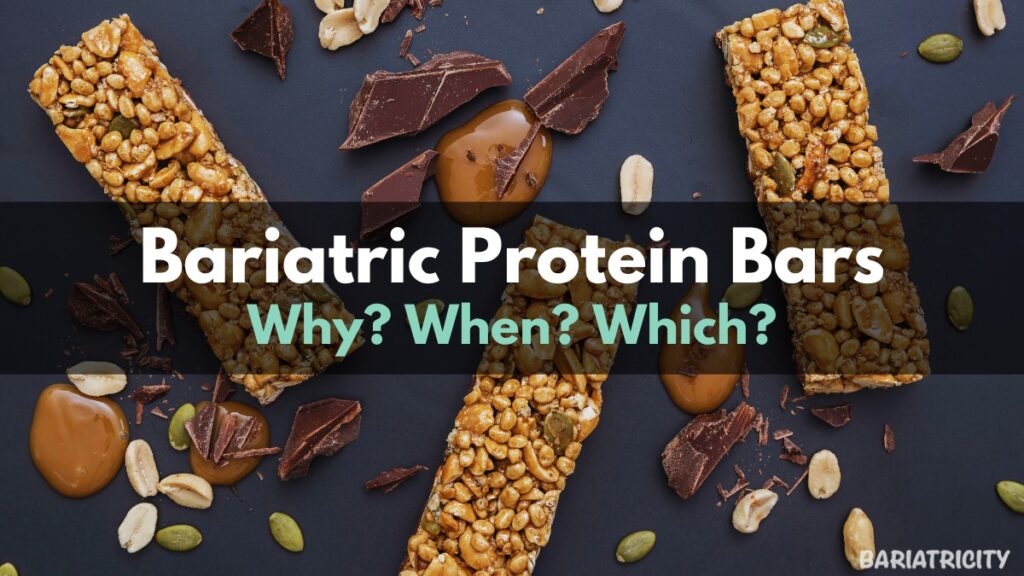Protein is the most essential macronutrient after bariatric surgery. With a smaller stomach, it can be difficult to reach your daily protein intake required for recovery and proper nutrient absorption.
After bariatric surgery, the stomach’s capacity to hold food is significantly reduced, making it challenging for patients to consume enough nutrients from regular meals alone.
Why are protein bars important for bariatric patients?
Protein plays a crucial role in the recovery and long-term success of patients who have undergone bariatric surgery. Here are several reasons why protein is so important after bariatric surgery:
- Facilitates Healing: Protein is crucial for repairing surgical wounds and regenerating tissues, significantly lowering the risk of post-operative complications.
- Preserves Muscle Mass: During rapid weight loss phases, protein intake is key to maintaining lean muscle mass, ensuring overall strength and functionality.
- Boosts Metabolism: Protein has a higher thermic effect compared to fats and carbohydrates, aiding in increased calorie burning and long-term weight management.
- Increases Satiety: Protein helps patients feel fuller for longer with smaller food portions, crucial for post-surgery dietary adherence and reducing cravings.
- Prevents Nutritional Deficiencies: Due to restricted food intake, bariatric patients must get sufficient nutrients from smaller meals, making protein essential to avoid deficiencies.
- Supports Overall Recovery: A robust immune system and improved mood and energy levels are supported by sufficient protein consumption, contributing to a positive recovery experience.
- Promotes Long-term Health: Ensuring adequate protein intake helps in preserving muscle mass and strength, crucial for healthy aging and reducing the risk of chronic diseases.
When can I eat protein bars within my bariatric diet plan?
Getting sufficient protein solely from whole food sources can be difficult due to the reduced portion sizes that bariatric patients must adhere to. This is where protein bars come in as a practical option, providing a concentrated source of high-quality protein in a compact, easy-to-consume format. They are particularly beneficial for on-the-go situations, ensuring that patients have access to the necessary nutrients, even when a full meal isn’t possible.
At around 4 to 6 weeks after surgery, during the solid food phase of the post-op diet and depending on your tolerance, you can start integrating bariatric protein bars into your diet. Always begin with a small portion to see how your stomach handles it and choose bars that are low in sugar and high in protein. Chew thoroughly and eat slowly.
Important: Pay attention to how your body reacts and consult with your dietitian or healthcare provider before introducing new foods, including protein bars, into your diet.
Daily Protein Intake Goals
Post-surgery, you should aim for 45 to 60 grams of protein per day. It should be the first thing you eat at every meal to get the most in before your stomach is to full to eat any more food.
Bariatric individuals should take care to thoroughly chew the protein bars, as the high fiber content can make them chewier and potentially more challenging to swallow.
Which bariatric protein bars are the best?
Our bariatric protein bars boast a wealth of health benefits, featuring natural ingredients, an impressive protein content, minimal sugar, and a generous dose of fiber. Whether you’re looking to enhance your daily diet or integrate them into one of our specialized meal plans, our bars are a smart choice for nutritious snacking.
Garden of Life
Garden of Life bars are organic and vegan-friendly. They average around 15 grams of protein and around 13 grams of fiber which are impressive stats for a plant-based bar. They are low glycemic, containing only 1 gram of sugar, and they taste great!
Julian Bakery Paleo Thin®
Paleo Thin bars are paleo friendly with 15-20 grams of protein and anywhere from 14 to 23 grams of fiber – which makes them unique. The high fiber content makes these bars have low net carbs, averaging around 5 net carbs per bar. High fiber bars are extremely beneficial after gastric surgery or on any low carb, high protein diet because fiber from food such as vegetable and legumes is limited due to smaller stomach capacity.
Epic Protein Bars
Epic bars are all natural meat bars made from 100% grass-fed beef, bison, chicken, pig, or lamb, and also contain dried fruit and spices. They are all paleo, gluten-free, and are low in sugar. These bars do not contain fiber or as much protein as the other bars do but are a great option for a more savory spin on a protein bar and offer a great snack option between meals.
What to Look for in Bariatric Protein Bars
- Natural Ingredients: Choose bars made with wholesome ingredients.
- Protein Power: Aim for bars with at least 15 grams of protein.
- Fiber-Filled: Look for bars with a minimum of 5 grams of fiber.
- Sugar-Smart: Select bars with less than 5 grams of sugar.
- Calorie-Conscious: Ensure your bar doesn’t exceed 200 calories.
Key Considerations for Bariatric Patients
Bariatric individuals should take care to thoroughly chew the protein bars, as the high fiber content can make them chewier and potentially more challenging to swallow.
Discover the ultimate solution for on-the-go nutrition with our exceptional range of bariatric protein bars. Tailor-made for bariatric patients, these bars are a convenient and portable snack, perfect for those bustling days when preparation time is scarce.
